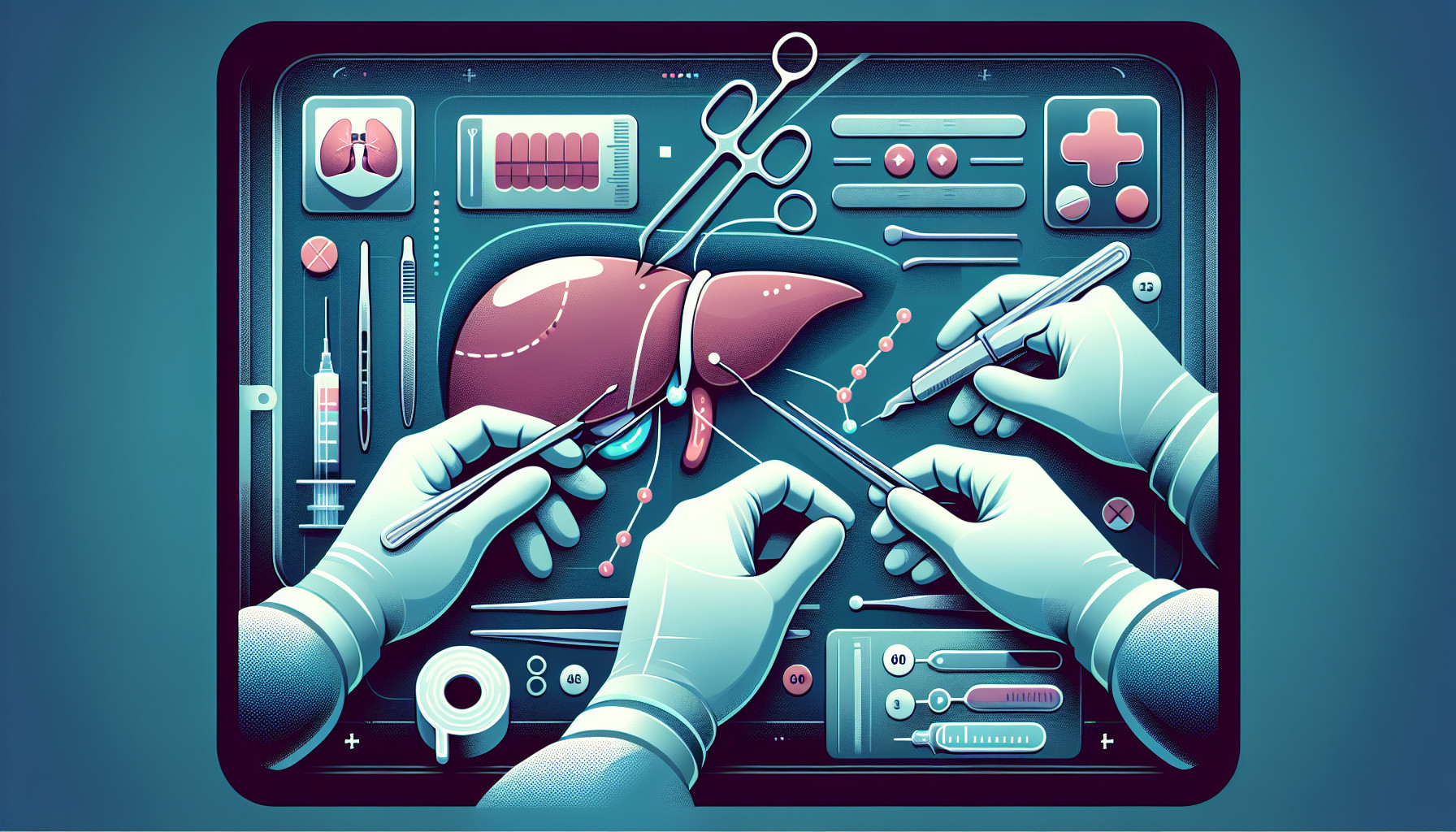Our Summary
EUS-guided liver biopsy is a medical procedure that is gaining popularity. The method involves using an ultrasound to guide a needle into the liver to take a small sample of tissue. Recent research shows that a specific type of needle (the 19G EUS core biopsy needle) is better for getting good liver tissue samples compared to other needles. Using a wet suction technique also helps to get better samples. Another trick is to prime the needle with a blood thinner called heparin to prevent it from getting clogged with blood. After the procedure, most patients only need about an hour to recover. The EUS method can take samples from different parts of the liver, which helps to avoid errors. This method is especially useful for patients who need both a liver biopsy and an endoscopy or EUS because it saves time and money. Overall, the EUS-guided liver biopsy is a safe and efficient way to get good quality liver samples. The technique continues to improve and its future applications are being explored.
FAQs
- What is an EUS-guided liver biopsy?
- What techniques are used to improve the quality of liver tissue samples in an EUS-guided liver biopsy?
- What are the benefits of using the EUS-guided liver biopsy method?
Doctor’s Tip
It is important to follow your doctor’s instructions before and after the liver biopsy procedure. Make sure to inform your doctor of any medications you are taking, allergies you have, or any medical conditions you may have. It is also important to fast before the procedure as instructed by your doctor. After the procedure, it is normal to experience some mild discomfort or bruising at the biopsy site, but if you experience severe pain, bleeding, or signs of infection, contact your doctor immediately. It is also important to rest and avoid heavy lifting or strenuous activity for a few days after the procedure to allow the biopsy site to heal properly. Follow-up appointments may be necessary to discuss the results of the biopsy and any further treatment options.
Suitable For
Patients who are typically recommended for a liver biopsy include those with:
- Liver diseases such as hepatitis, cirrhosis, fatty liver disease, and autoimmune liver diseases
- Abnormal liver function tests that cannot be explained by other tests or imaging studies
- Suspected liver tumors or masses
- Monitoring for progression of liver diseases or response to treatment
- Evaluation of liver transplant candidates
- Assessment of liver damage from medications or toxins
It is important to consult with a healthcare provider to determine if a liver biopsy is necessary and to discuss the risks and benefits of the procedure.
Timeline
Before the liver biopsy:
- Patient is scheduled for the EUS-guided liver biopsy and instructed on pre-procedure preparations.
- Patient may need to fast for a certain period of time before the procedure.
- Patient arrives at the medical facility and undergoes pre-procedure assessments.
- An IV line may be inserted for medication administration.
- Patient is positioned on their side for the procedure.
- Ultrasound is used to guide the needle into the liver to obtain a tissue sample.
After the liver biopsy:
- Patient is monitored for a brief period after the procedure to ensure there are no immediate complications.
- Patient may experience some mild discomfort or soreness at the biopsy site.
- Patient is advised to rest and avoid strenuous activities for the remainder of the day.
- Patient is given instructions on post-procedure care and when to follow up with their healthcare provider.
- Patient may receive the results of the biopsy within a few days to a week.
- Patient may need further treatment or monitoring based on the results of the biopsy.
What to Ask Your Doctor
What is the purpose of the liver biopsy and what information will it provide about my liver health?
How is the EUS-guided liver biopsy performed and what can I expect during the procedure?
What are the potential risks or complications associated with the EUS-guided liver biopsy?
How should I prepare for the procedure, including any necessary fasting or medication adjustments?
Will I need to arrange for someone to drive me home after the procedure?
How soon will I receive the results of the liver biopsy and how will they be communicated to me?
What are the potential treatment options or next steps based on the results of the liver biopsy?
Are there any specific post-procedure care instructions I should follow, such as avoiding certain activities or medications?
Are there any alternative methods of obtaining liver tissue samples that could be considered?
Are there any additional questions or concerns I should discuss with my healthcare provider before undergoing the liver biopsy procedure?
Reference
Authors: Mok SRS, Diehl DL. Journal: Curr Gastroenterol Rep. 2019 Jan 31;21(2):6. doi: 10.1007/s11894-019-0675-8. PMID: 30706151
